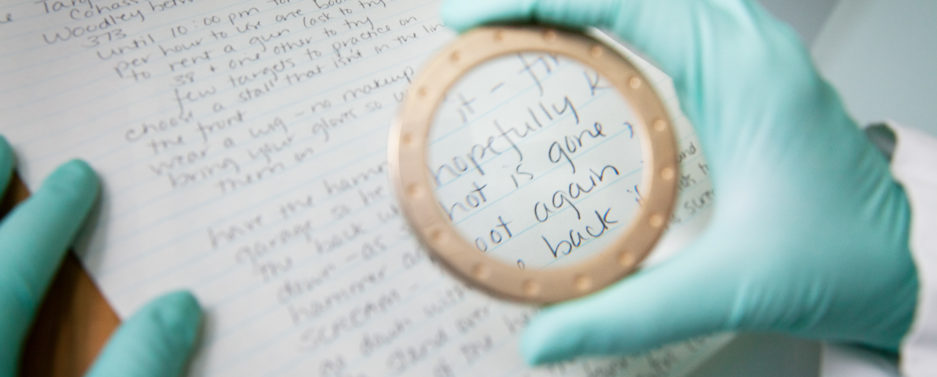What is a forensic document examiner?
A forensic document examiner analyzes documents to determine authorship or authenticity or to discover facts about their preparation or subsequent handling. The examination can include comparison of handwriting or hand-printing; detection of alterations, photocopier and computer manipulation; restoration or decipherment of erased and obliterated writing; visualization of latent impressions; the identification of printing processes; and differentiation of inks. Forensic document examiners also provide their findings as expert testimony in court.
How do I find a qualified forensic document examiner?
Vist our Find an Expert page to find an ABFDE-certified examiner. Note that not all Board-certified forensic document examiners are willing or allowed by their agency to take private cases, so please click on the “Accepts Private Cases?” heading twice to sort and view all the examiners with a “Yes” in that column.
Why should I hire an ABFDE-certified forensic document examiner?
ABFDE certification is a challenging process that requires a trained forensic document examiner pass a written and oral test. Successful completion means the examiner has the requisite knowledge about the field and is able to properly present and support an accurate opinion on multi-faceted cases similar to those found in real casework.
How do I become a forensic document examiner?
Training opportunities are limited but are typically trainee positions in a law enforcement crime laboratory. On rare occasions, a qualified private document examiner may agree to take on an apprentice. The amount of training generally considered acceptable is 2-4 years, full-time. There are no college programs or web-based training that will give you the skills necessary to become a forensic document examiner. Significant in-person training with an experienced examiner and access to numerous and varied cases is essential to acquiring the needed skills.

